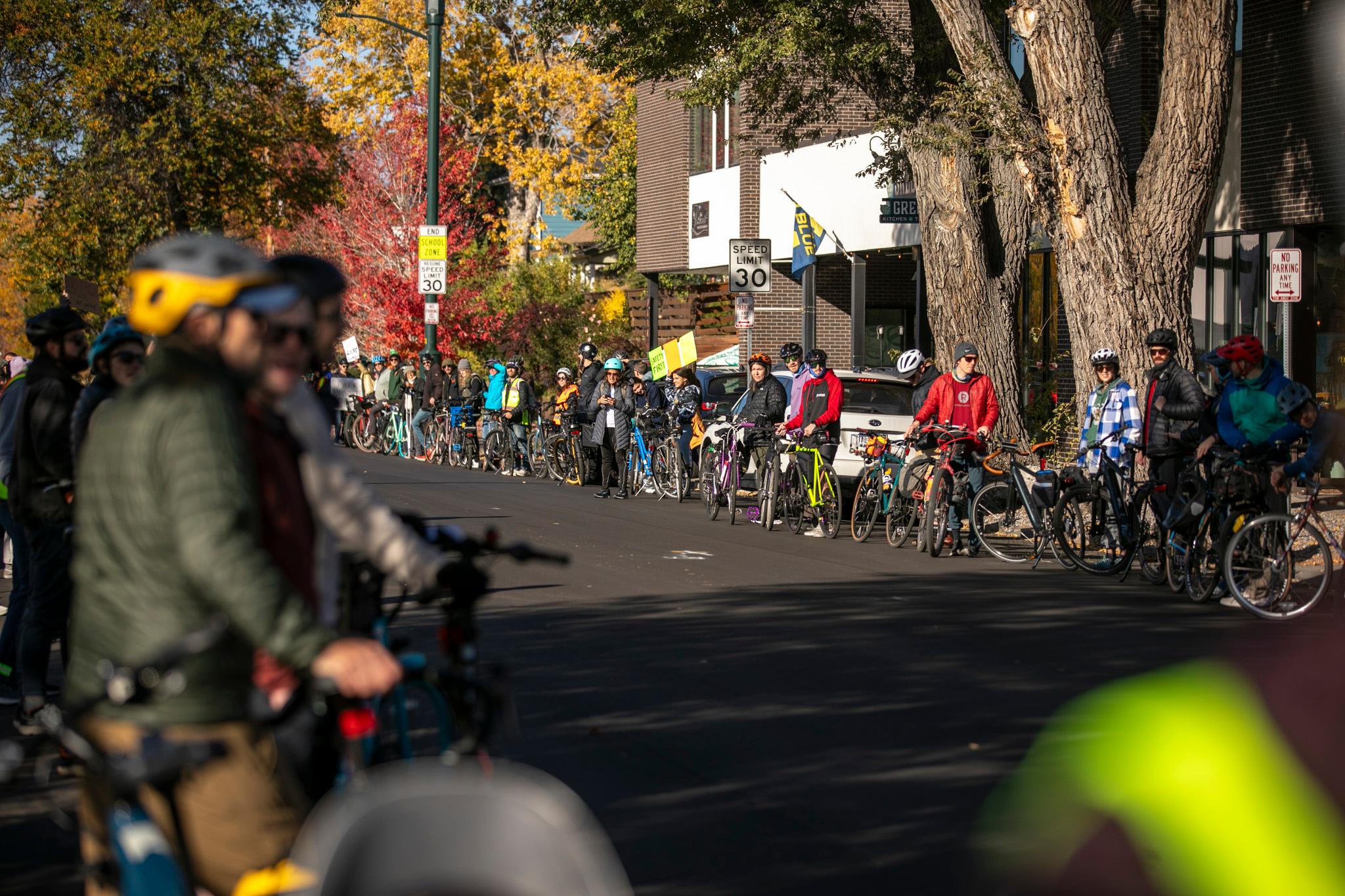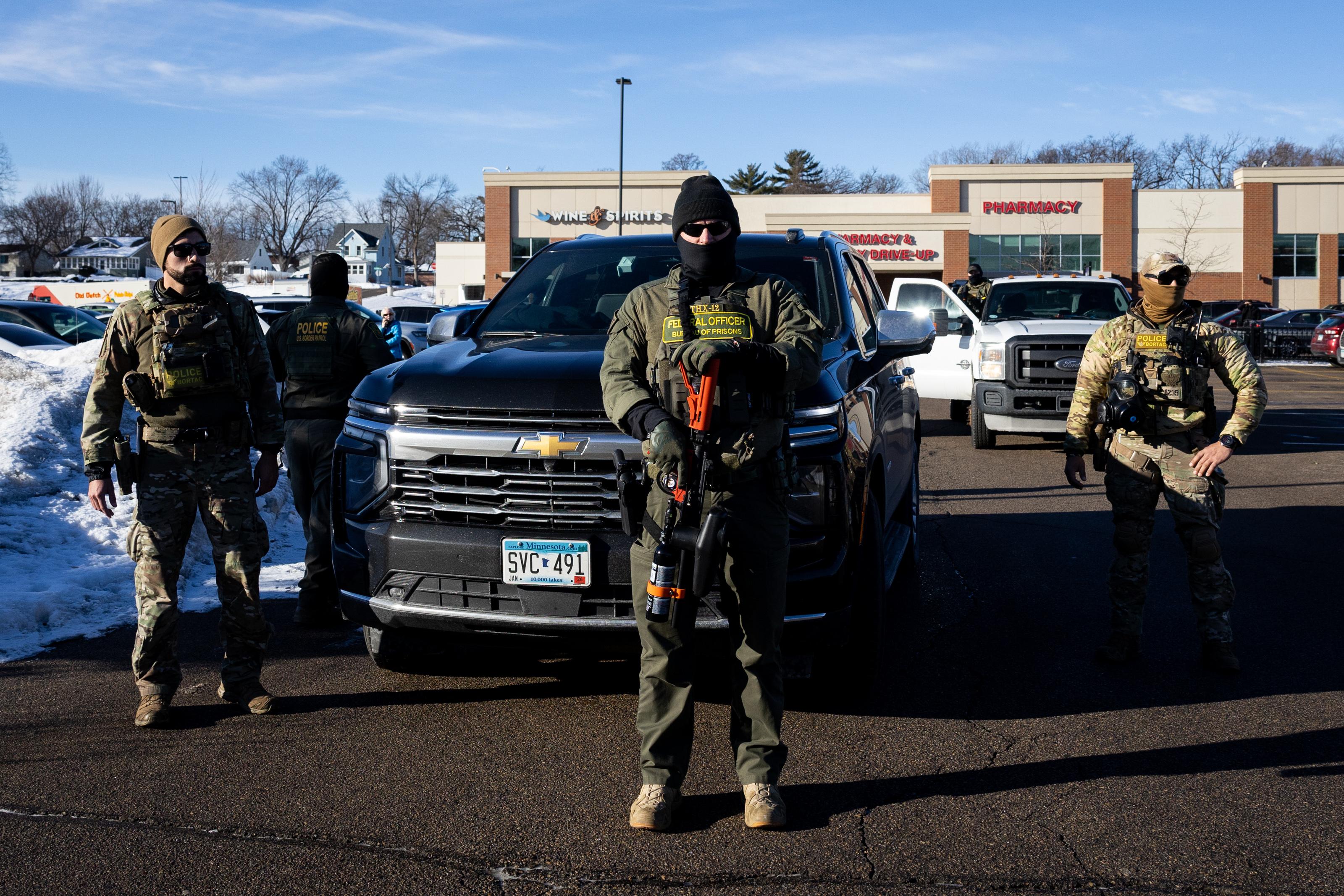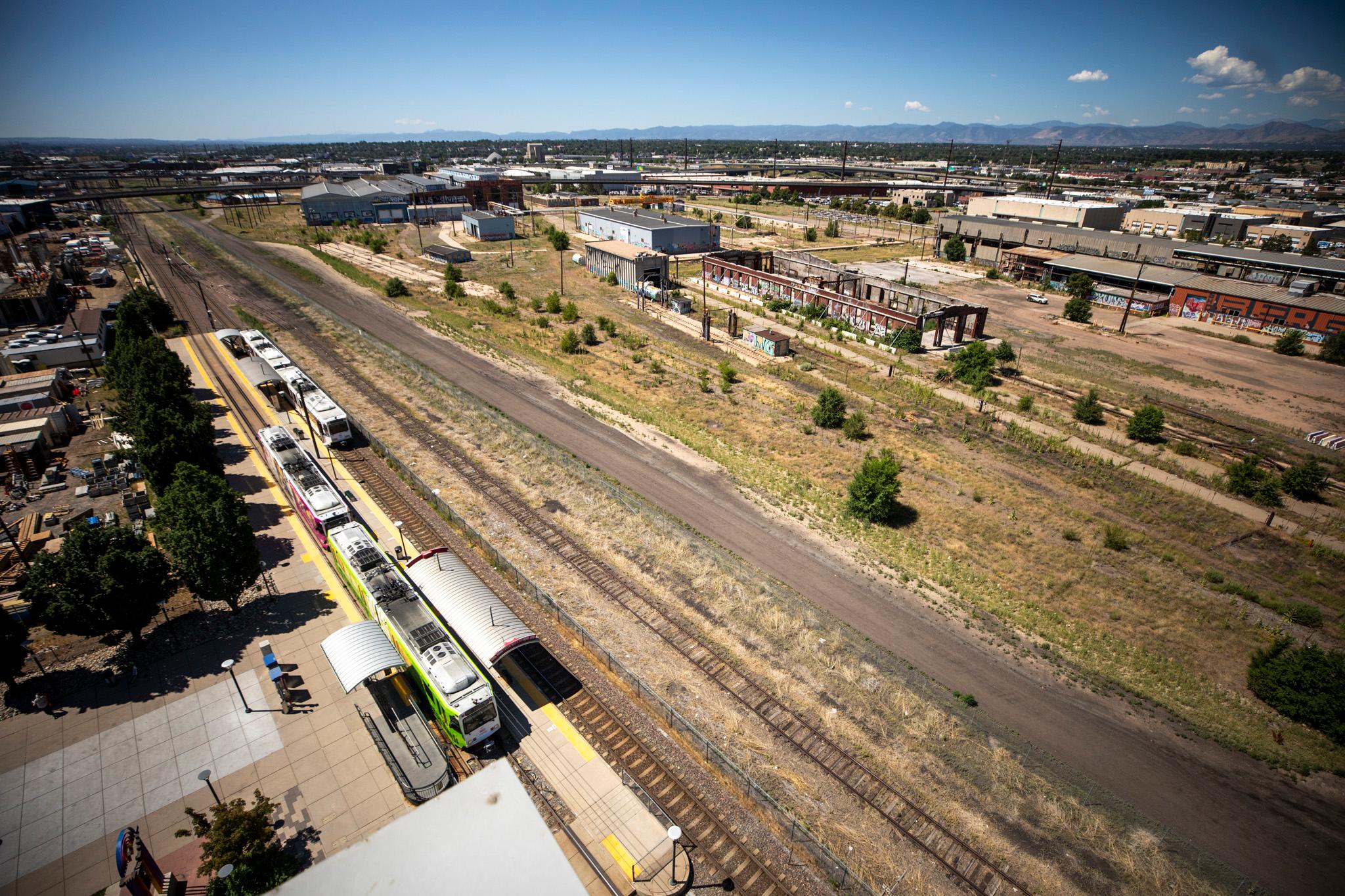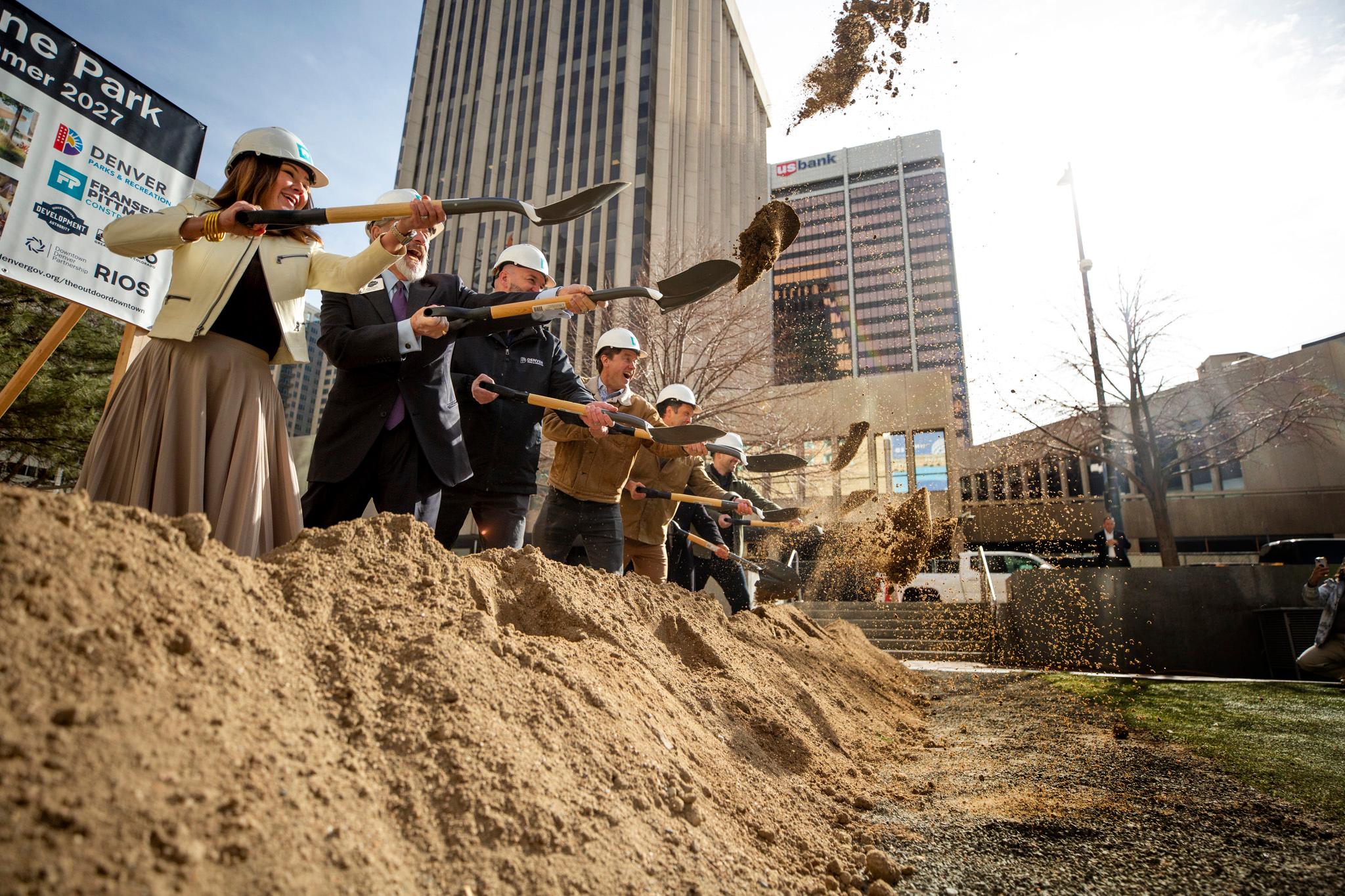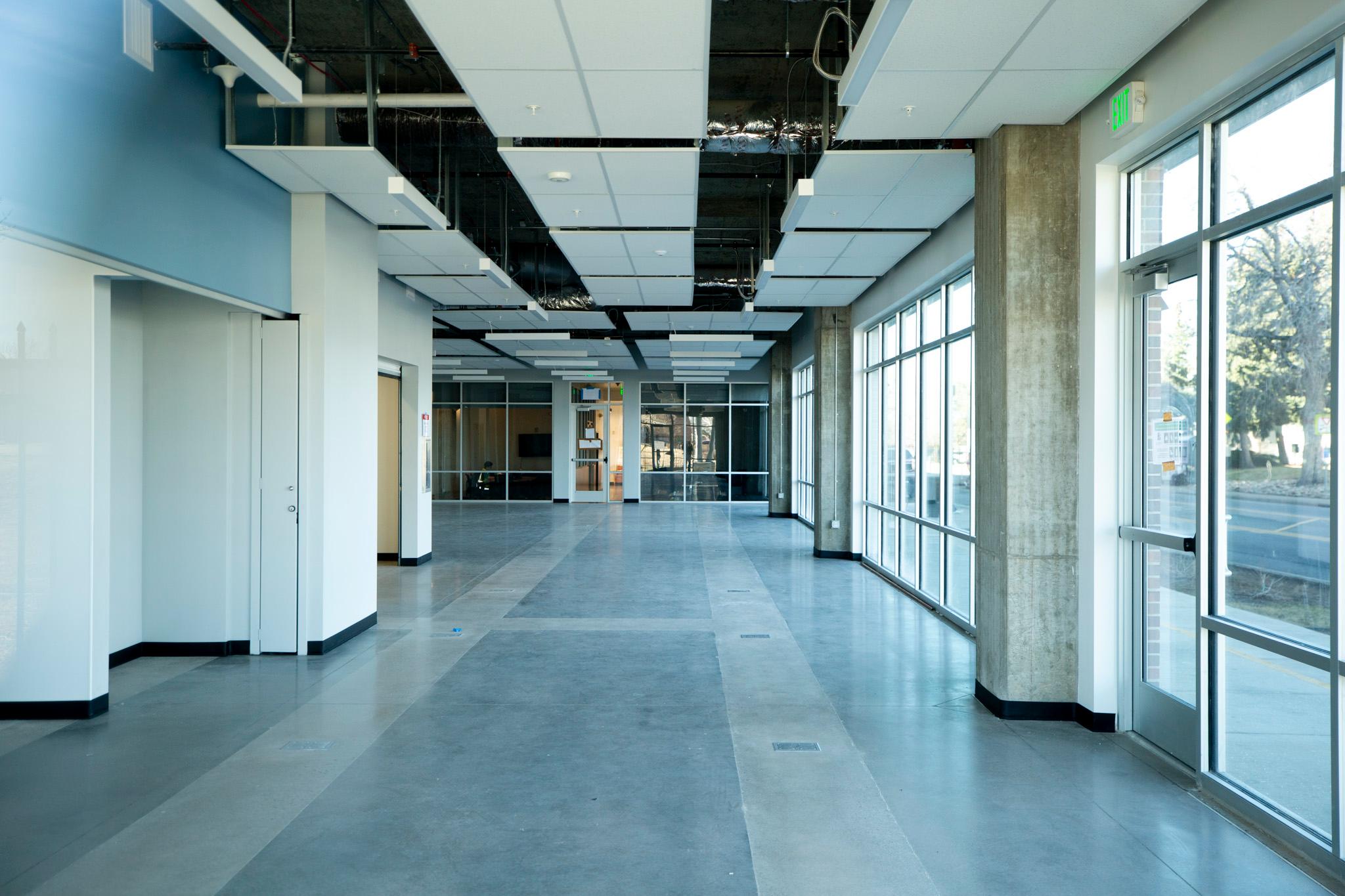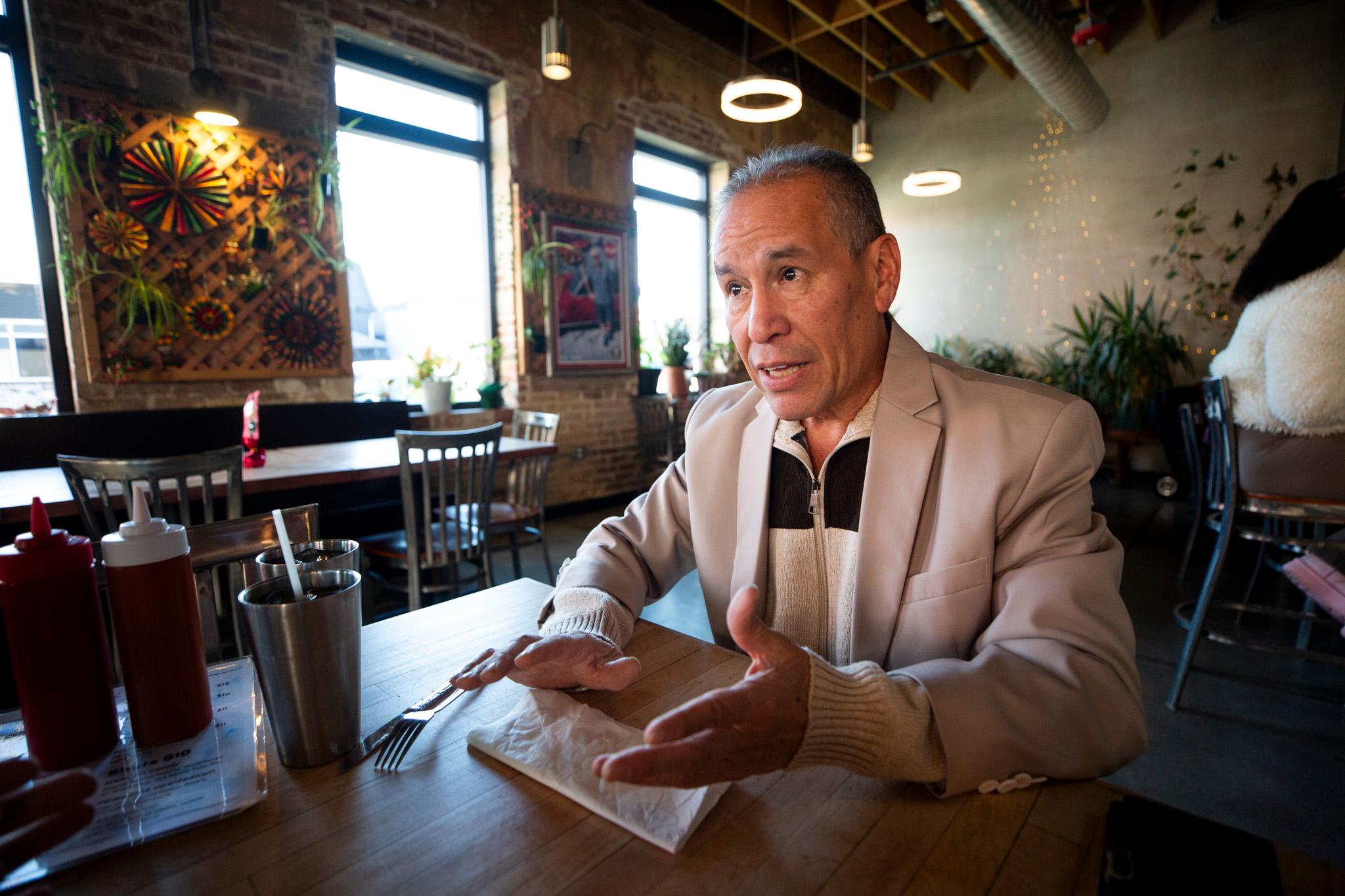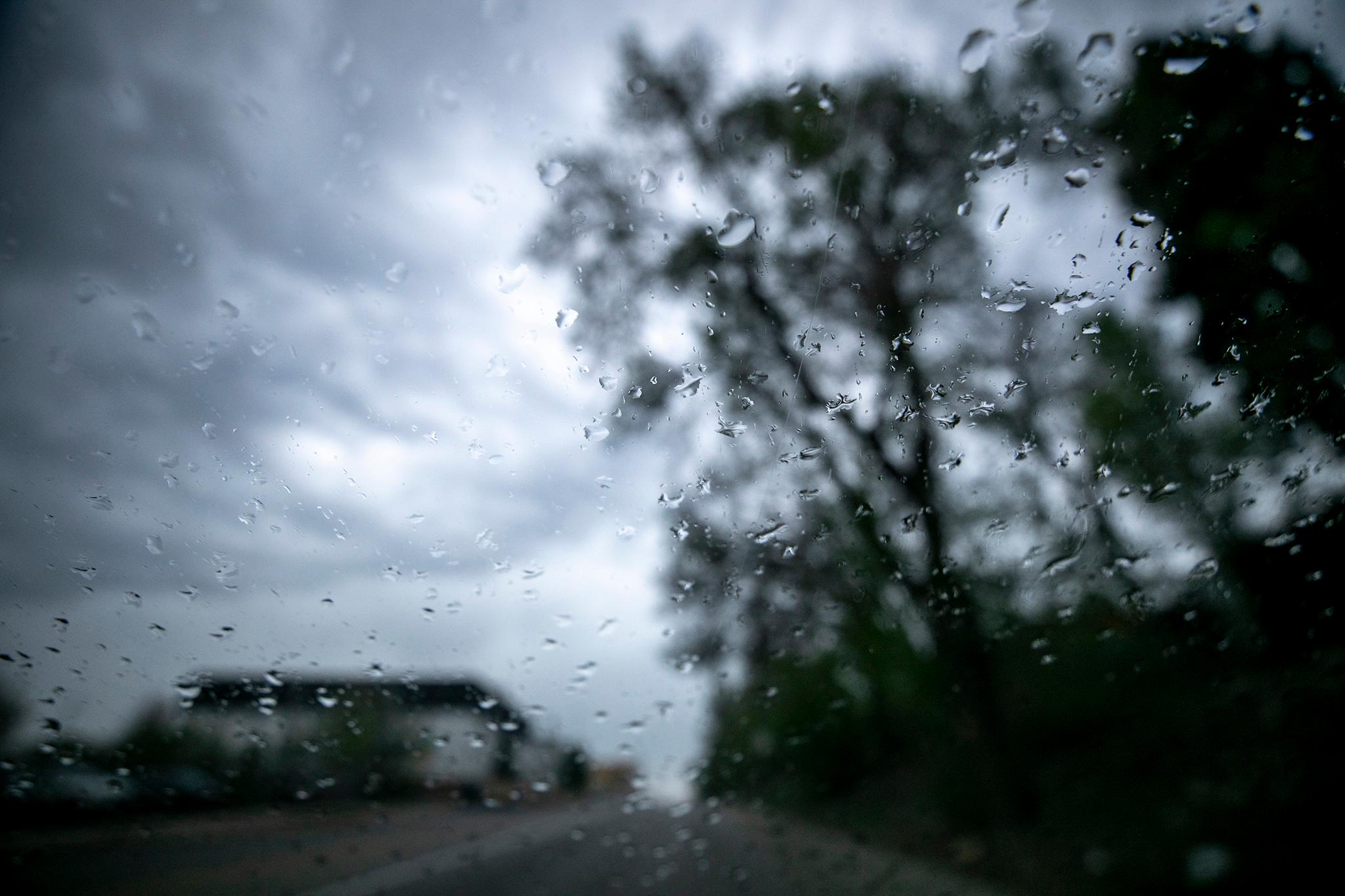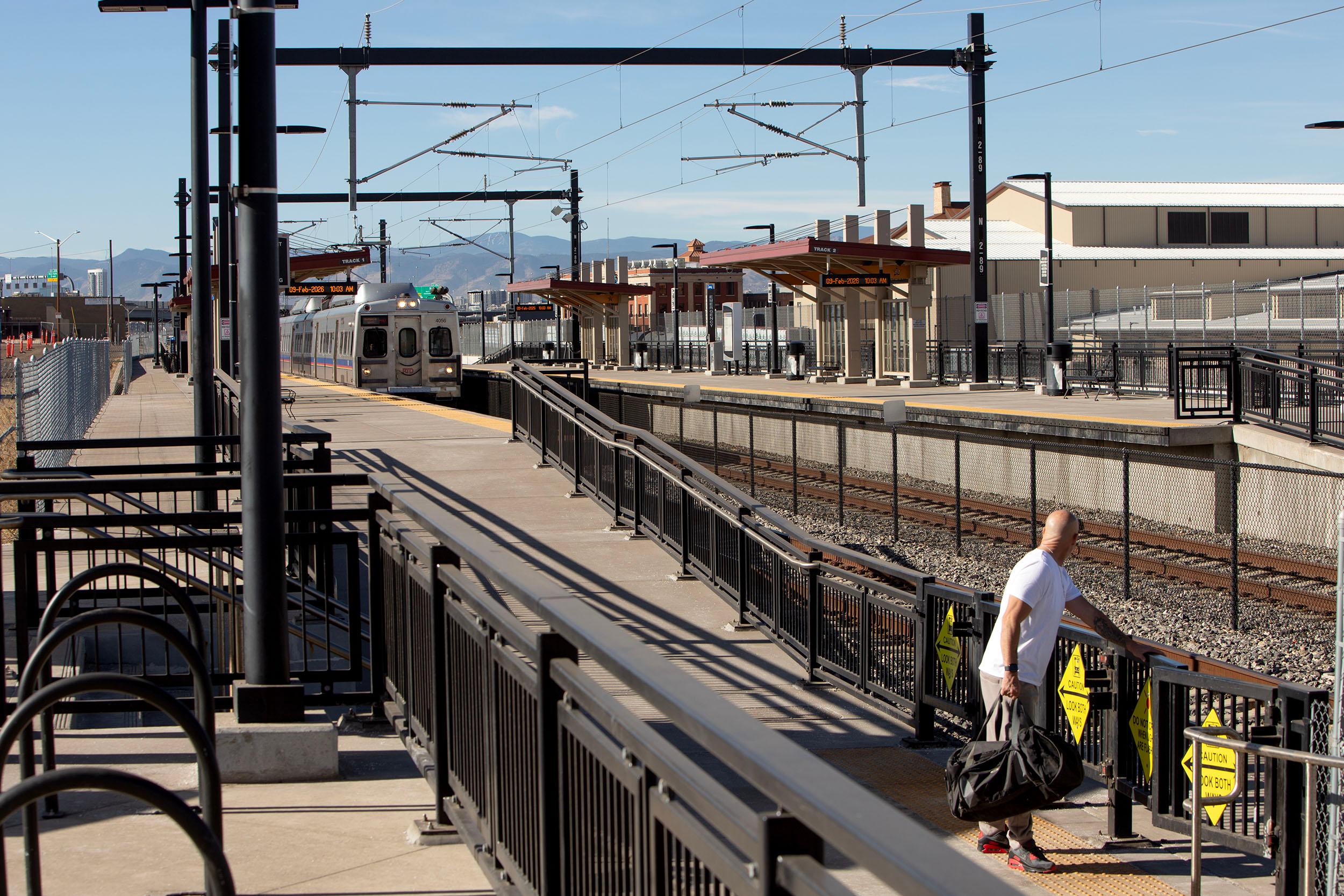People who care about bike safety and progressive urban design haven't been loud enough in their advocacy, Alejandra Castañeda told us this weekend.
But a situation on the west side of town has boiled over, and they're starting to find their voice.
On Saturday, a few dozen cyclists met along 29th Avenue, which divides the city's West Highland and Sloan Lake neighborhoods, to protest the cancelation of part of a protected bike lane along the corridor. They shouted chants as they rode together, blocking traffic, then created a symbolic bike lane with their bodies.
"We have not done enough of this, protesting and coming together, Castañeda said.

The project originally called for a new, protected bike lane along West 29th Avenue from Sheridan Boulevard to Zuni Street, to be lined with posts or other barriers. That's a distance of about 2 miles.
But the final version of the project includes barriers for only 1.5 miles of the bike lane. The section west of Tennyson Street will remain unprotected in order to save parking spots for nearby residents and businesses.
The Denver Department of Transportation and Infrastructure, or DOTI, said they decided to change the project after residents and business owners complained about parking spaces they'd lose in the process. Some worried that losing car parking would make it more difficult to patronize the businesses, or just getting around.Officials said they had to "balance the needs of the community.”
Castañeda, who helped organize the rally, said she doesn't buy that excuse.
"That word balance makes me angry. It makes me angry because you cannot balance someone storing a car on a street with someone's life. I don't see a balance," she said. "That's a moral judgment and it is the wrong moral judgment."
The bike-tivists started a petition asking DOTI to change course again.
People we met Saturday weren't just miffed that this part of town may not receive a protected lane. They were also feeling betrayed, as that lane was part of an official plan before the department reversed course.
A Change.org petition that Castañeda set up makes that part clear.
"We are a group of community members requesting that the Denver Department of Infrastructure (DOTI) follows its own final design shared with the community on August 14, 2024," it says, "in alignment with a months-long community-outreach process, and longstanding city-wide plans and policies."

While she is upset, Castañeda said she's not surprised by DOTIs' change.
"I've been frustrated for years because we have plans, citywide plans, small area plans, climate action plans, safe routes to school plans, Denver Moves Everyone plans, and we have plans and surveys and public comment and budgets," she said. "And then, when the time comes to actually implement those plans, politics get involved. Politicians get involved ... and then things go backwards. ... That is the lack of courage and leadership."
Cyclists say this is life and death to them.
As they gathered for the protest, activists lined 29th Avenue with cups of colored water, at the edge of where they might ride. By the time they started, a few had been knocked over, or smushed, by cars passing by. It was supposed to symbolize how cars can intrude on cyclists' space.
"Everyone has close calls," Tara Ippolito said as she pretended to be a protective bike lane barrier. "Everyone who's ridden a bike on the street has had a couple instances where you feel like you're about to get smashed."

Patrick Duffy, who was standing with her, agreed.
"It's quite scary sometimes."
Casteñeda told us the city's hesitation on bike infrastructure is counterproductive since Denver's climate office has strongly incentivized e-bike purchases in the last few years.
"We're putting people on e-bikes," she said, "then we don't create protected infrastructure for those people to move safely."

Jack Lund, who was riding with his young son and a sign that read "PARK ANYWHERE ELSE" strapped to his cargo bike, said he's only felt those stakes rise after he became a parent.
"It definitely shades all of my interactions with cars when I'm on the road," he said. "I plan to live in this neighborhood for a long time. Eventually, my kid will be on his own bike, and I hope there's a protected bike lane for him to be on."
It's all the more reason why Denver's changing position stings.
"The fact that they flip-flopped I think is just inexcusable," Lund added. "You're catering to private businesses, who are using public land to support their business in the way of parking, and prioritizing that over people trying to bike safely on the street."

